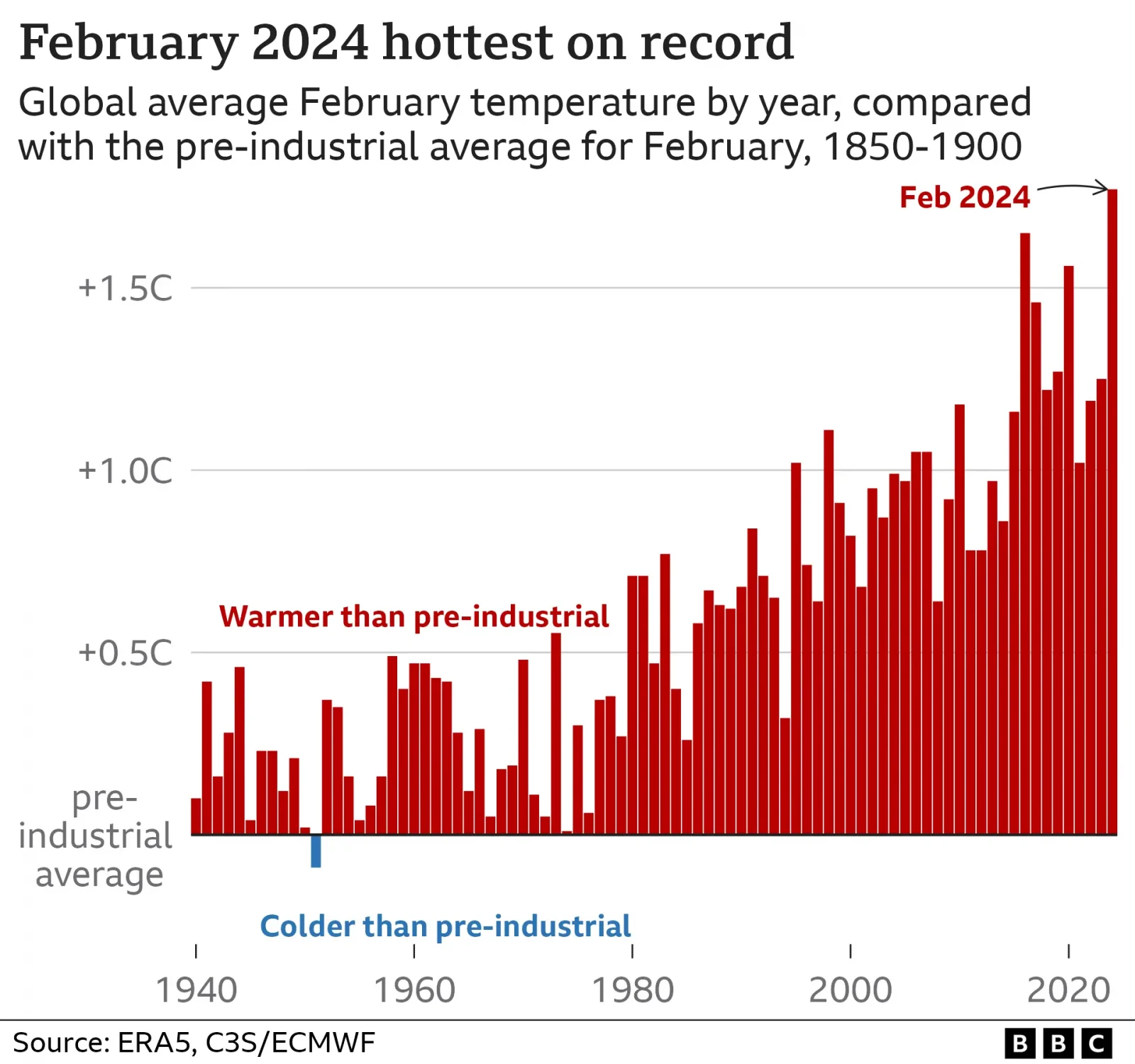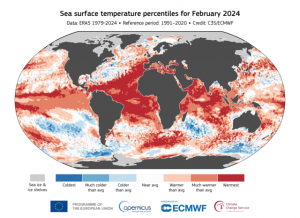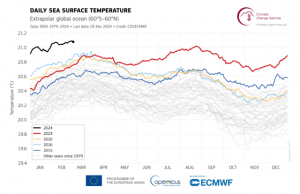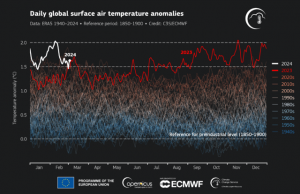
February 2024 Hottest on Global Records, Sets New Temperature Highs

February 2024 marked the hottest February on record globally, with soaring temperatures recorded by Copernicus, the EU’s climate monitoring service. The average global surface air temperature was 13.54 degrees Celsius, surpassing pre-industrial levels by 1.77 degrees Celsius.

This extends a streak of nine consecutive months setting new records for warmth. Record-high temperatures occurred in the first two weeks of February, with daily averages reaching two degrees Celsius above the pre-industrial average. Ocean temperatures also peaked, hitting 21.06 degrees Celsius, the highest ever recorded.

COPERNICUS CLIMATE CHANGE SERVICE/ECMWF
These warming oceans exacerbate climate change by melting sea ice and contributing to rising sea levels. Climate scientists warn of critical thresholds being exceeded, including the 1.5-degree Celsius mark. The recent records coincide with an ongoing El Niño event, further impacting global climate patterns.

C3S/ECMWF
Despite the event’s natural occurrence, human activities intensify its effects. Urgent action to stabilise greenhouse gas concentrations is emphasised to mitigate the impacts of climate change.
Read: After Listing his Power Firm, Tony Elumelu Advices FG to Privatise Electricity Transmission
About The Author
Related Articles
Tinubu Government Delays Release of Signed Tax Acts to the Public
Four days after President Bola Tinubu announced the signing of four tax...
ByMayowa DurosinmiJune 30, 2025As Tinubu Urges Africa-Caribbean Unity in Saint Lucia, Over 272 Nigerians Killed in June Alone
While Nigerians deal with deadly violence, worsening hunger, and mass flooding, President...
ByWest Africa WeeklyJune 30, 2025You Can’t Tax a Dead Economy: Nigeria Is Suffocating Under Its Own Policies
As Nigeria’s Central Bank clings to its benchmark interest rate of 27.5...
ByWest Africa WeeklyJune 30, 2025“Wike is Not a Blessing to Us, He’s a Disaster” — Workers Protest in Nigeria’s Capital Over Unpaid Wages, Poor Working Conditions
Staff members of the Federal Capital Territory Administration (FCTA) in Abuja barricaded...
ByOluwasegun SanusiJune 30, 2025











